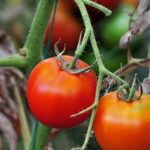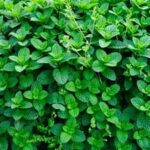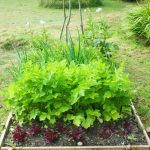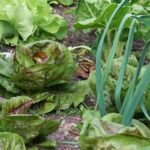Are you a Florida resident interested in growing your own vegetables but lack the outdoor space for a traditional garden? Florida vegetable container gardening might be the perfect solution for you. With the right knowledge and techniques, you can enjoy the benefits of homegrown produce even in a limited space. In this article, we will explore everything you need to know to start your own successful Florida vegetable container garden.
Container gardening has become increasingly popular in Florida due to its versatility and accessibility. Whether you live in a small apartment or have limited outdoor space, container gardening allows you to grow your own vegetables with minimal space requirements. This method also offers greater control over soil quality, which is especially important in areas with potential soil-borne diseases like in many parts of Florida.
In this guide, we will cover various aspects of Florida vegetable container gardening, including the benefits, best vegetable selections for container gardening in Florida’s climate, choosing the right containers, essential soil and fertilizer tips, watering and sunlight requirements, pest and disease management, as well as tips for successful gardening throughout different seasons. Whether you are an experienced gardener or just starting out, this comprehensive guide will help you achieve a successful and bountiful container garden in the Sunshine State.
Benefits of Container Gardening in Florida
Container gardening in Florida offers a wide range of benefits, making it an ideal option for many gardeners in the state. One advantage of container gardening is its flexibility, as it allows individuals to grow their favorite vegetables even if they have limited space or poor soil quality. This is particularly beneficial in Florida, where the sandy soil and hot temperatures can pose challenges for traditional gardening methods.
Another key benefit of container gardening in Florida is the ability to easily control the growing conditions for your plants. By using containers, you can ensure that your vegetables receive the proper amount of sunlight and water, as well as the right soil composition. This level of control can lead to higher yields and healthier plants, ultimately resulting in a more successful gardening experience.
In addition to providing greater control over growing conditions, container gardening in Florida also helps minimize the risk of pests and diseases. Because containers are elevated off the ground, they are less susceptible to certain types of pests and soil-borne diseases that can affect traditional gardens. This means that you can spend less time dealing with pest management and more time enjoying your thriving vegetable garden.
| Benefit | Description |
|---|---|
| Flexibility | Allows for growth even with limited space or poor soil quality. |
| Control | Enables control over growing conditions such as sunlight, water, and soil composition. |
| Pest and Disease Management | Reduces risk of pests and diseases due to elevation off the ground. |
Selecting the Right Vegetables for Florida Container Gardening
When it comes to Florida vegetable container gardening, selecting the right vegetables is key to a successful and bountiful harvest. Due to the unique climate and conditions in Florida, it’s important to choose vegetables that are well-suited for container gardening and can thrive in the warm temperatures and humidity of the state.
Considerations for Selecting Vegetables
When selecting vegetables for your Florida container garden, there are several factors to consider. It’s important to choose varieties that are known for their heat tolerance and disease resistance, as these traits will be beneficial in the Florida climate. Additionally, consider the size of the containers and the space available for your garden, as some vegetables may require more room to grow than others.
Recommended Vegetables for Florida Container Gardening
Some of the best vegetables for Florida container gardening include tomatoes, peppers, eggplant, cucumbers, zucchini, lettuce, herbs such as basil and parsley, and even certain types of beans. These vegetables are well-suited for container growing and can thrive in the warmth and sunlight that is abundant in Florida.
Tips for Success
To ensure success with your vegetable container garden in Florida, it’s important to follow proper care guidelines for each type of vegetable you choose. This may include providing adequate support for vining plants like cucumbers and tomatoes, regular pruning and harvesting of leafy greens like lettuce, and monitoring soil moisture levels for all varieties. By selecting the right vegetables and implementing proper care techniques, you can enjoy a thriving container garden filled with delicious produce throughout the year.
Choosing the Best Containers for Florida Vegetable Gardening
When it comes to Florida vegetable container gardening, choosing the right containers is crucial for the success of your garden. Here are some tips for selecting the best containers for growing vegetables in Florida:
1. Consider the size: Make sure the containers you choose are large enough to accommodate the root systems of the vegetables you plan to grow. Some vegetables, like tomatoes and peppers, require bigger containers, while smaller plants like herbs can thrive in smaller pots.
2. Drainage is key: Proper drainage is essential for successful container gardening in Florida. Look for containers with drainage holes at the bottom to prevent waterlogged soil, which can lead to root rot. You can also add a layer of gravel or perlite at the bottom of the container to improve drainage.
3. Material matters: The material of the container can have an impact on the health and growth of your plants. While plastic containers are lightweight and affordable, they can retain heat and may need more frequent watering in Florida’s hot climate. On the other hand, terracotta or clay pots are porous and allow for better air circulation, but they may dry out faster.
4. Consider mobility: Since Florida experiences occasional cold snaps during winter, consider choosing containers that are easy to move indoors when necessary. Look for lightweight options or invest in wheeled plant caddies for easier mobility.
By considering these factors when choosing your containers, you can ensure that your Florida vegetable container garden has everything it needs to thrive in the Sunshine State’s unique climate.
Overall florida vegetable container gardening can be a rewarding experience when done correctly and choosing appropriate containers sets your garden up for success right from the start.
Essential Soil and Fertilizer Tips for Florida Vegetable Container Gardening
When it comes to Florida vegetable container gardening, proper soil and fertilizer management are essential for the success of your plants. The hot and humid climate in Florida can present unique challenges for growing vegetables, but with the right soil and fertilizer, you can ensure a bountiful harvest.
First and foremost, it’s important to choose a high-quality potting mix for your container garden. Look for a mix specifically formulated for vegetables, as it will provide the necessary nutrients and drainage that your plants need to thrive. Avoid using regular garden soil in your containers, as it tends to become compacted and may not drain well in a confined space.
In addition to using a quality potting mix, incorporating organic matter into the soil can be beneficial for Florida vegetable container gardening. Compost or well-rotted manure can improve soil structure, moisture retention, and overall plant health. Mix in a generous amount of compost with your potting mix before planting your vegetables to give them a good head start.
When it comes to fertilizing your container garden, using a balanced fertilizer is key. Look for a fertilizer with equal parts nitrogen, phosphorus, and potassium (N-P-K) to provide your plants with the necessary nutrients for healthy growth. In Florida’s warm climate, frequent watering can wash away nutrients from the soil, so regular fertilization is crucial for container-grown vegetables.
By paying close attention to the soil and fertilizer needs of your Florida vegetable container garden, you can ensure that your plants have everything they need to grow and produce an abundant harvest. With proper soil management and regular fertilization, you’ll be well on your way to enjoying fresh vegetables grown right in your own backyard.
Watering and Sunlight Requirements for Florida Container Gardens
Florida’s climate can be quite challenging for growing vegetables, but with the right knowledge, you can create a successful container garden. When it comes to watering your vegetable containers in Florida, it’s important to keep in mind the hot and humid weather. Containers tend to dry out more quickly than ground soil, so it’s essential to water them regularly. In the summer months, you may need to water your containers daily, especially during dry spells.
In addition to watering, sunlight is crucial for the success of your Florida vegetable container garden. Most vegetables require at least 6-8 hours of sunlight per day to thrive. However, in Florida’s intense heat, some leafy greens and herbs may benefit from partial shade during the hottest part of the day. Be mindful of where you place your containers and monitor how much sunlight they receive throughout the day.
Proper watering and adequate sunlight are essential factors in the success of your Florida vegetable container garden. By understanding the specific needs of both your plants and your local climate, you can create an environment that promotes healthy growth and bountiful harvests.
| Watering Tips | Sunlight Requirements |
|---|---|
| Water containers daily in summer | Most vegetables require 6-8 hours of sunlight per day |
| Monitor moisture levels regularly | Some leafy greens may benefit from partial shade |
| Consider using self-watering containers | Adequate sunlight promotes healthy growth |
Pests and Disease Management for Florida Vegetable Container Gardens
Common Pests and Diseases in Florida Container Gardens
Florida’s warm and humid climate can create the perfect conditions for pests and diseases to thrive in vegetable container gardens. Some of the common pests that gardeners may encounter include aphids, whiteflies, spider mites, and caterpillars. These pests can cause damage to the plants by feeding on the leaves and stems. In addition, fungal diseases such as powdery mildew and bacterial diseases like bacterial wilt can also affect vegetable plants in containers.
Preventative Measures
To prevent the infestation of pests and the spread of diseases in your Florida vegetable container garden, it is essential to practice good gardening hygiene. This includes regularly inspecting your plants for any signs of infestation or disease, removing any affected plant parts immediately, and properly disposing of them to prevent the spread of pathogens. Additionally, practicing crop rotation and using disease-resistant varieties can help minimize the risk of pest infestations and diseases.
Natural Pest Control Methods
In a Florida vegetable container garden, it is important to explore natural pest control methods that are safe for both the environment and beneficial insects. For example, introducing predatory insects like ladybugs or lacewings can help control aphid populations. Additionally, using neem oil or insecticidal soaps can be effective against soft-bodied pests like aphids and spider mites without harming beneficial insects or causing harm to the environment.
By implementing these preventative measures and natural pest control methods, you can effectively manage pests and diseases in your Florida vegetable container garden while minimizing the need for chemical interventions.
Tips for Successful Florida Vegetable Container Gardening in Different Seasons
When it comes to successful Florida vegetable container gardening, it’s important to take into consideration the different seasons and their unique climate challenges. Here are some tips for maximizing your container garden’s potential throughout the year:
- Spring: During this season, it’s essential to start planting warm-season vegetables such as tomatoes, peppers, and cucumbers. Make sure to place your containers in a location that receives at least 6-8 hours of sunlight per day.
- Summer: The scorching heat of summer in Florida can be challenging for vegetable container gardens. To protect your plants from the intense sun, consider using shade cloth or moving them to a partially shaded area. Be diligent with watering, as containers tend to dry out faster in hot weather.
- Fall: Fall is the perfect time to plant cool-season vegetables like lettuce, kale, and carrots. Keep an eye on temperature changes and be prepared to move your containers indoors if there’s a sudden cold snap.
In addition to planting the right vegetables at the right time, it’s crucial to pay attention to other seasonal factors such as soil moisture, temperature fluctuations, and pest activity. By adapting your container gardening practices to suit each season’s unique characteristics, you can ensure a bountiful harvest year-round.
Overall, understanding how each season impacts your Florida vegetable container gardening efforts is crucial for success. By staying informed about appropriate planting times, weather considerations, and pest management strategies for each season, you’ll be well-equipped to enjoy a thriving container garden no matter what time of year it is.
Harvesting and Enjoying the Fruits of Your Florida Container Garden
In conclusion, Florida vegetable container gardening offers a convenient and rewarding way to grow your own produce, even in limited outdoor spaces. By following the tips and guidelines outlined in this article, you can successfully enjoy a bountiful harvest of fresh vegetables grown right in your own containers.
One of the great benefits of Florida vegetable container gardening is the ability to control the soil conditions and environment for your plants, resulting in healthier and more productive crops. Additionally, container gardening allows for easy mobility and flexibility, making it possible to move your plants around to optimize sunlight exposure or protect them from harsh weather conditions.
When selecting the right vegetables for your Florida container garden, it’s important to consider the climate and growing conditions specific to your area. With careful planning and maintenance, you can enjoy a variety of delicious homegrown vegetables year-round with Florida vegetable container gardening.
Frequently Asked Questions
What Is the Best Month to Plant Vegetables in Florida?
The best month to plant vegetables in Florida is typically in the fall, from September to November. This allows the plants to establish themselves before the colder winter months and ensures a good harvest before the scorching heat of summer.
What Vegetables Grow Well Together in a Container?
Vegetables that grow well together in a container include tomatoes, basil, and peppers. These plants have similar care needs and their different heights create a visually appealing container garden.
What Vegetables Grow Well in Florida?
Several vegetables grow well in Florida’s climate, including tomatoes, peppers, squash, cucumbers, and okra. These warm-season crops thrive in the state’s long hot summers and mild winters when planted at the appropriate times.

If you’re looking to get into vegetable gardening, or are just looking for some tips on how to make your current garden better, then you’ve come to the right place! My name is Ethel and I have been gardening for years. In this blog, I’m going to share with you some of my best tips on how to create a successful vegetable garden.





